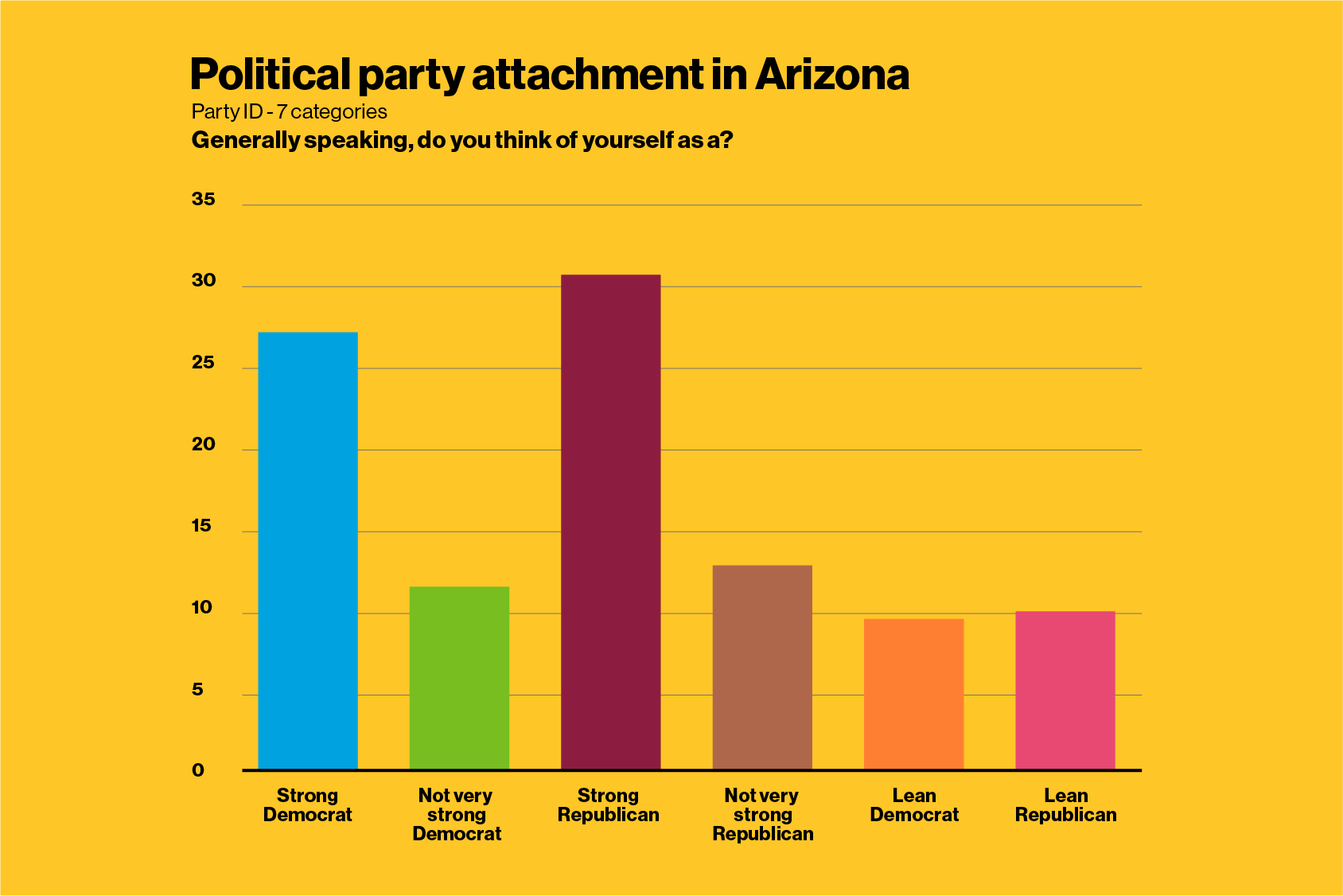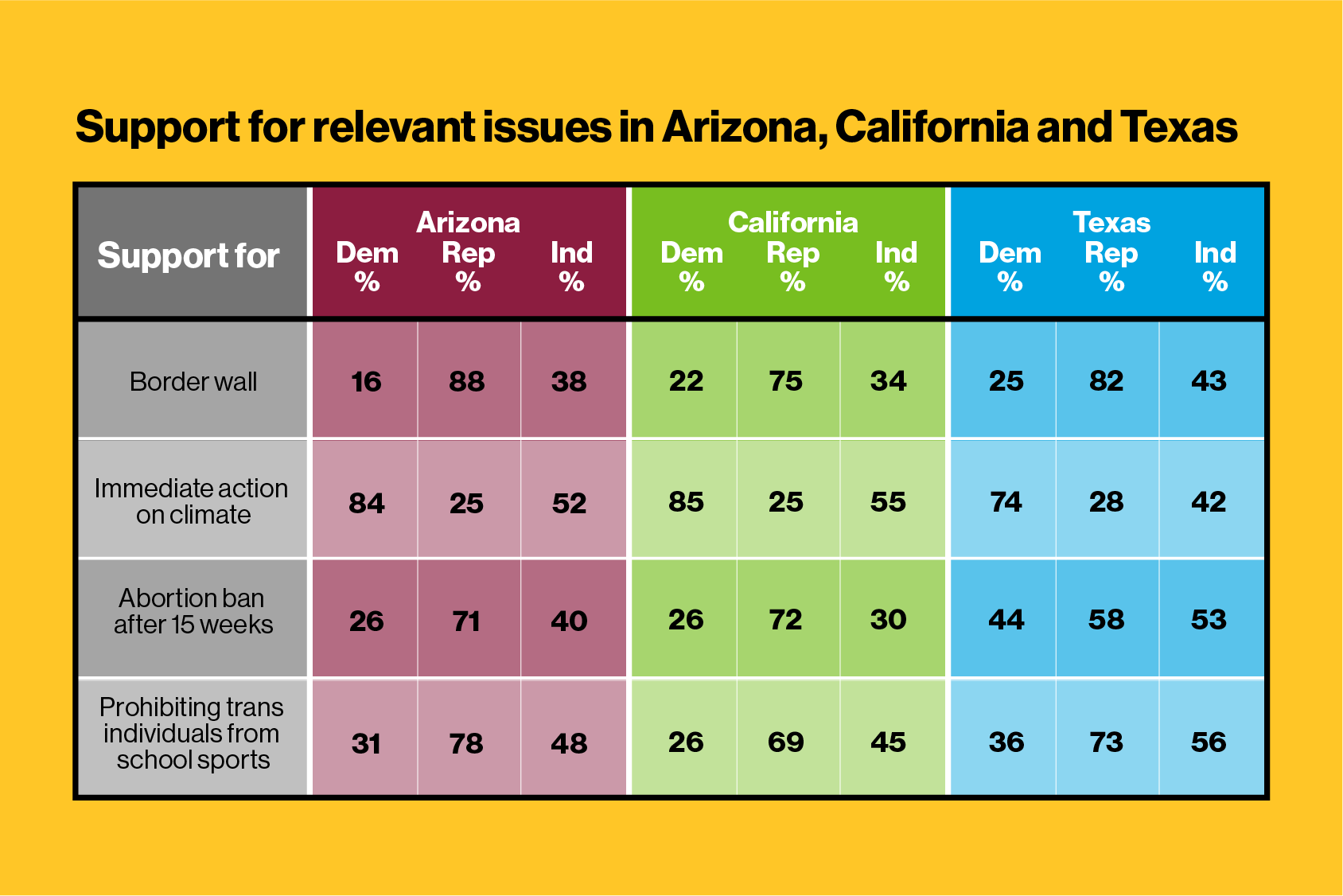New survey examines political affiliation in Arizona, California and Texas

The survey is part of a five-series joint polling project among researchers at Arizona State University, Stanford University and the University of Houston that kicked off in June. ASU photo
With the 2024 election fast approaching, campaign strategists and pundits might think Democrats, Republicans and Independents who live in different states differ on the most critical issues.
Is it possible Democrats view politics differently in San Francisco when compared with Democrats in Dallas? Or, maybe Republicans in Phoenix see things differently than Republicans in Los Angeles or Houston. Not so, reveals a survey conducted in three important Southwestern and Western states: Arizona, California and Texas.
The survey is part of a five-series joint polling project among researchers at Arizona State University, Stanford University and the University of Houston. The series kicked off in June with the release of a survey examining the three states’ changing attitudes on abortion.
Survey respondents were from representative samples of Arizona, California and Texas residents, age 18 or older. Respondents were asked about their political party attachment, political ideology and views about the spending priorities of state governments and other controversial topics, including support for a border wall, an abortion ban after 15 weeks and immediate climate action.
“The findings of this specific report emphasize the importance and dominance of partisanship in the American electorate. Party attachment guides our understanding of how potential voters feel about ideology, spending priorities of state governments and several controversial issues,” said Dean of The College of Liberal Arts and Sciences and Executive Vice Provost at Arizona State University Patrick Kenney.
“This joint project explores citizens' attitudes in these three key Western states. These states currently run the gamut along the political continuum of U.S. politics,” Kenney said. “California is governed primarily by the Democratic Party, the Republican Party governs Texas, by and large, and Arizona is a swing state with Democrats and Republicans sharing control.”
Figure 1: Political party identification in Arizona. Courtesy The College of Liberal Arts and Sciences
California will play a key role in the Electoral College, while Texas will be crucial for the Republican Party. Voting patterns over the past several decades indicate these states are likely to remain loyal to their respective party. But Arizona is a classic battleground state. In the 2020 presidential election, Joe Biden beat Donald Trump by a slim margin in Arizona, receiving 49.36% of the votes compared to 49.06% for Trump.
This research provides specific insight into whether voters of the same party differ in their values across the three states.
The findings indicate no dramatic differences among citizens of the same party across Arizona, California or Texas. So campaigns can cast nearly identical messages in different media markets on topics such as supporting abortion, climate action or support for K–12 education.
Among the other interesting survey findings:
Abortion ban after 15 weeks: Texas Democrats are far more supportive of an abortion ban after 15 weeks (44%) compared with Arizona and California Democrats (26% support in both states).
Border wall: California Republicans are less supportive of a border wall compared with their counterparts in Arizona and Texas, although overall support across the three states is over 75%.
Elementary and secondary schools: A majority of Democrats, Republicans and Independents in each of the three states are supportive of increasing spending for elementary and secondary schools.
- Health care: Democrats in Arizona support increases in spending to aid the poor and on health care by 7% or 8% more than Democrats in California. However, these differences are minor, considering that both states are overwhelmingly supportive of increasing spending on these two issues.
Figure 2: Support for relevant issues in Arizona, California and Texas. Courtesy The College of Liberal Arts and Sciences
The survey was conducted between May 31 and June 6 among 3,163 respondents 18 years and older; 1,051 were in Arizona, 1,045 were in California, and 1,067 were in Texas. The margin of error is +/- 3.0%.
Other published analyses in the three-state survey series include the status of abortion laws and transgender legislation and policies.
More Law, journalism and politics

Annual John P. Frank Memorial Lecture enters its 26th year
Dahlia Lithwick, an MSNBC analyst and senior legal correspondent at Slate, is the featured speaker at the School of…

The politics behind picking a romantic partner
A new study reveals the role that politics play when picking out a romantic partner — particularly for older adults.“Findings…

Tips to make tax season less taxing
When it comes to highly unpleasant experiences, filing taxes is probably up there with root canals — which is why people put off…



